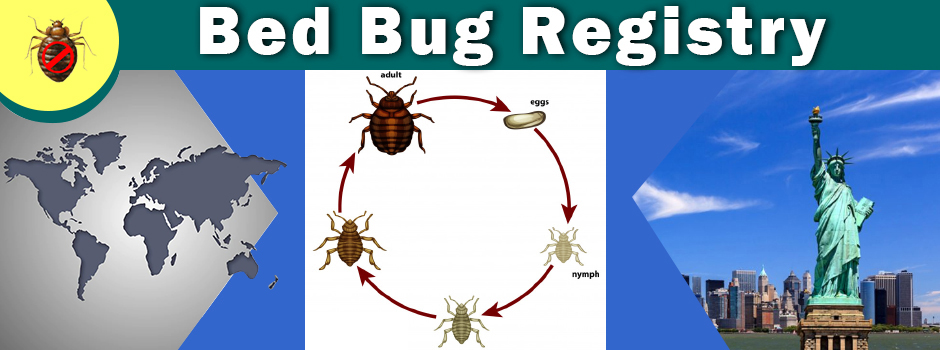Slide: 1 / of 2 .
Caption: Female of the bed bug - Cimex lectularius. Scale : bug length ~ 5 mmGilles San Martin
Slide: 2 / of 2 .
Caption: Graph of products tested. Only the first two products significantly killed bed bugs--when sprayed directly on them. Singh et. al 2014
Consumers desperate to eradicatetiny domestic vampireshave created ahuge marketfor natural bed bug control. Salesarehigh, as are some of the claims; bogus bed bug products have prompted multipleFederal Trade Commission (FTC) actions for deceptive advertising.
Newresearch put11 over-the-counter bed bugspraysto the test to see if essential oils can do more than make your bedroom smell nice. The results were underwhelming.
Potential of Essential Oil-Based Pesticides and Detergents for Bed Bug Control. 2014. N. Singh, C Wang, & R. Cooper.J. Econ. Entomol. 107(6); DOI: http://dx.doi.org/10.1603/EC14328
The products tested containedingredients foran aromatherapy overdose: cedar, cinnamon, geraniol, clove oil, peppermint, rosemary, lemon grass oil, citronella, and others. Additionalingredients were soap (sodium lauryl sulfate, a foaming agent commonly found in shampoo); salts (potassium sorbate); and 2-Phenethyl propionate, which occurs naturally in peanuts.
Most of the products failed a very simple test: if you sprayed the stuffdirectly on live bed bugs in a petri dish, would they die? Researchers measured bug deaths after 1, 3, 5, 7, and 10 days to make sure they captured any lingeringeffects. Two conventional pesticides were included for comparison purposes in the tests:Temprid SCandDemand CS. There also were control bed bugs that got spritzed with water as a mock spray treatment.
Seven of the natural products tested did not manage to kill even(50%)of the bed bugs sprayed, measured by dead bugs 10 days later.
Only Temprid SCandEcoRaiderkilled 100% of the bugswhen applied directly. AlthoughTemprid SC, a synthetic pesticide, killed 100% of the bed bugs on the first day, only88% of bedbugs in the EcoRaider tests had died by the 5th day. None of the compounds tested acted as repellents to bed bugs in climb-up tests, where the bugs had to walk over a treated area.
Thesecond synthetic pesticide, Demand CS, performed poorly in these trials, probably because of resistance to pyrethroid insecticidesin the bed bugs tested. It did, however, do betterin residual tests; 14 days later Demand CSwas still killing on a level with EcoRaider and Temprid SC.
It Might Not Be the Essential Oils, Anyway
Perhaps the most interesting and confusing conclusion from this research is that essential oils are probablynotwhat killed thebed bugs. The same active ingredients inEcoRaider and Bed Bug Patrol were also in other products (Bed Bug Fix, Green Rest Easy, and Essentria, for example) thatwerent effective killers. What actually killed the bugs is likely something in the spray formulation.
Adjuvants, wetting agents, spreaders, stabilizers, defoamers, stickers, and solvents are all in these sprays, and might work in tandem with the essential oils by improving penetration into the insect, or slowing detoxification. Those formulations are generally proprietary and secret, so figuring out what works may take a while.
No, Mr. Bug, I Expect You to Die
If you see a bed bug and spray it with EcoRaider, it probably will kill the insect, based on this research. The problem is, you generally dont see bed bugs. Thats why they are so insidious. Bed bugs are remarkably tiny, flat, and fast. They can live inside the slot of a screw holding your bed-frame together. They mightlive inside electrical outlets near your bed, or behind photo frames. They can bide their time and wait; bed bugs can go for months without feeding. Its the bed bugs you cant see that you should worry about.
As someone whos written about bogus insecticide products for years, the dismal performance of green pest spraysisnt a shock.Bed bugs offerfertile ground for hucksters in the same way that serious medical conditions invite exploitation of the ill. Both topics involve a lot of anxiety and stress, dont have easy solutions, and people are willing to pay lots of money to find a solution.
Ecoexempt, the worst performer in these tests, sells for $84/gallon;Stop Bugging Meis $90/gallon.Over-the-counter insecticide foggers are not effective for bed bug control and are still sold widely for that purpose.
Natural pesticides qualify for exemption from the Federal Insecticide, Fungicide and Rodenticide Act (FIFRA). They dont actually have to provide efficacy data for registration.With an over-loaded regulatory systemand a low cost of development, manufacturers can roll out new products quickly, and rake in the profits.
Hopefully theFTC will follow up on this research with additional warnings to get some of these ineffective products off the market. Consumers usingthesesprays may justgive theirbed bugs alovely peppermint scent.
See the original post:
Essential Oils Fail at Killing Bed Bugs | WIRED

 Residence
Residence  Location
Location 
